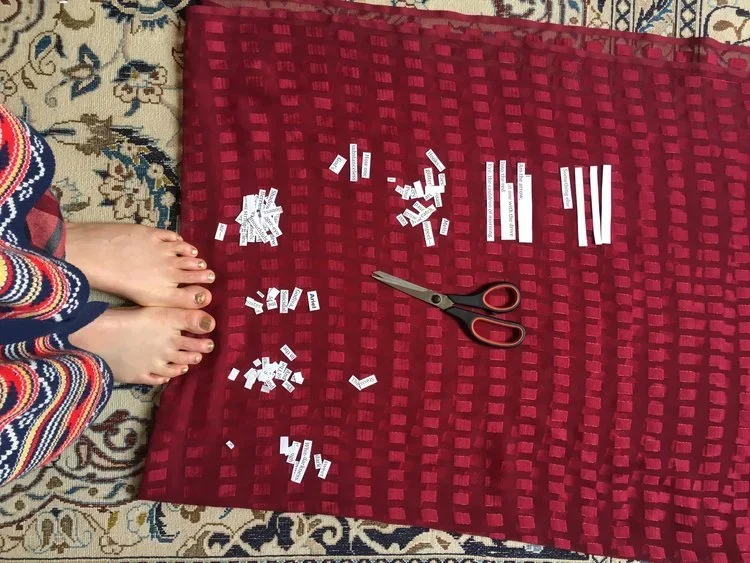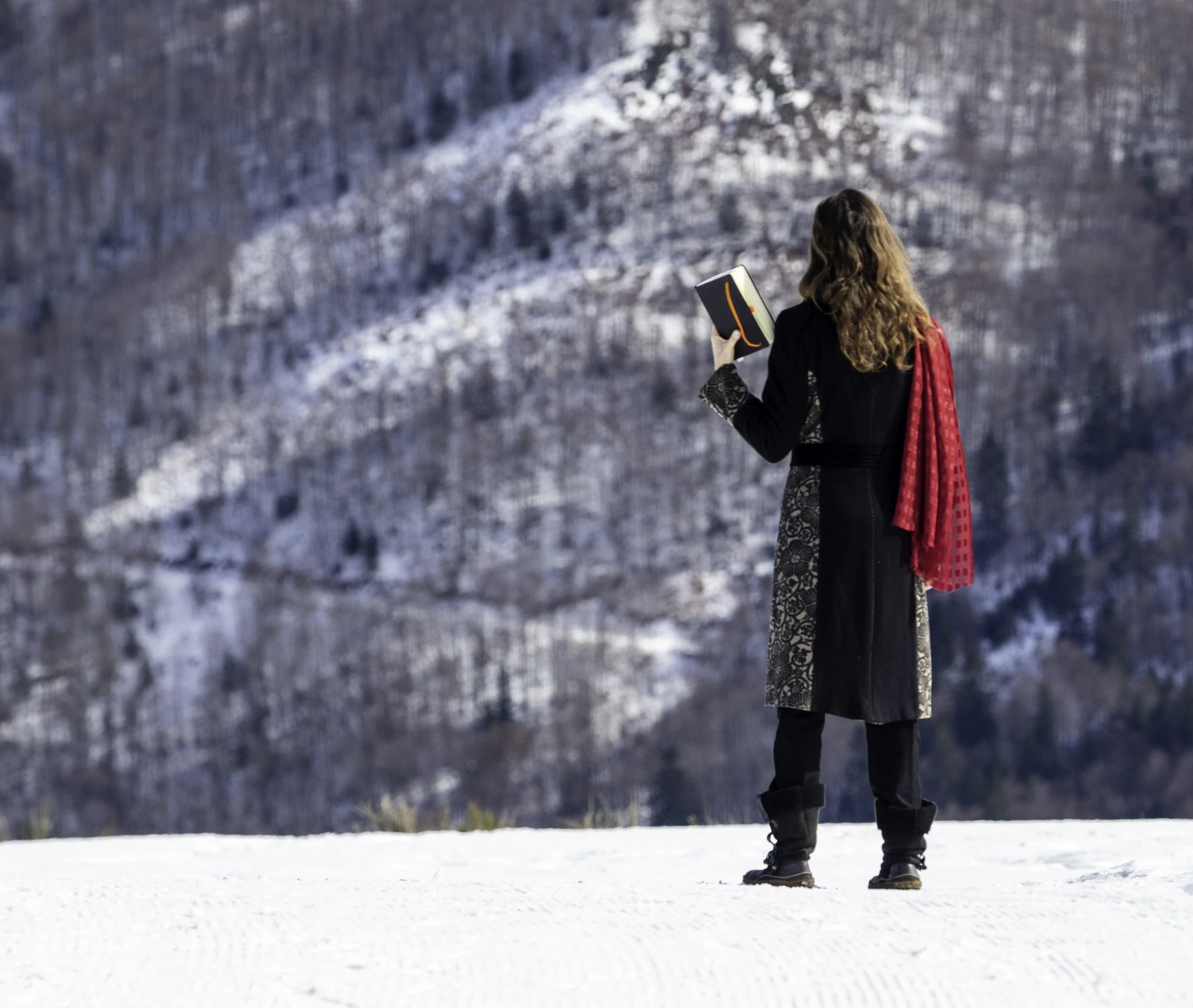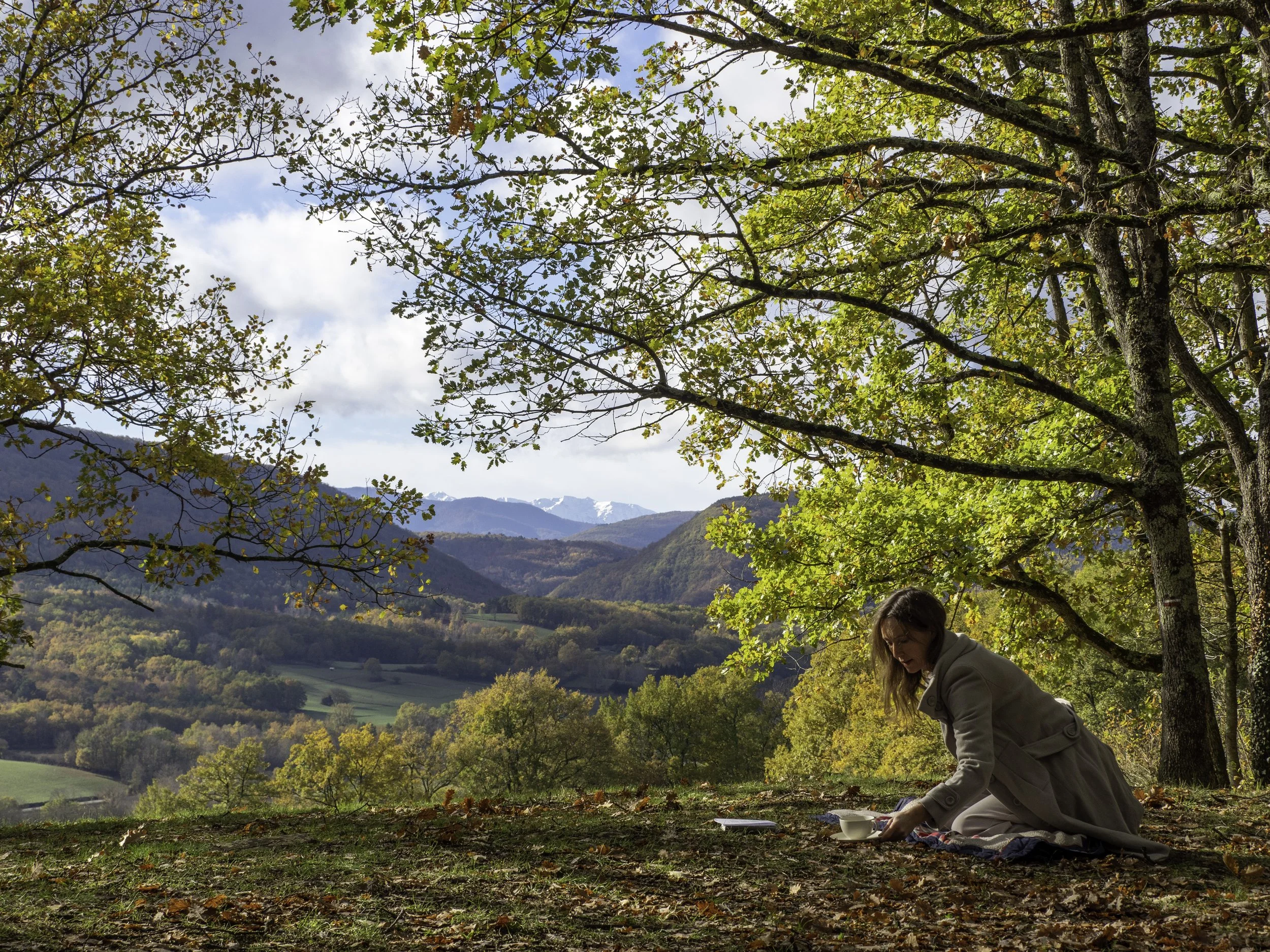The Shorter Works
Memoir, Fiction, Meditations. And sometimes all of those together. Where my passions find a place on the page.
Ariel by Sylvia Plath - the reconstruction
Saving Sylvia: liberating words and re-finding the poet
I’ve started collapsing and re-constructing poems, rather desperately, with the illogical but deeply felt sense I can somehow save the lives of the poets who couldn’t save their own.
Us writers, we’re always trying to word-craft our way to freedom and happiness. It’s even, often, that words are a lifeboat; we save our own lives by and in the writing.
But what if we’ve been making a mistake? What if that which we seek can only be found, not in in the words themselves, but the space around the words—in the hush of the gap after the final stanza? What if, instead of writing that narrative arc (Act 1, Act 2 and Act 3 and the denouement), we started with Act 3 and just stayed there…?
All will be explained.
Ariel is in the process of being re-found and re-imagined. With deep admiration and profound thanks to Sylvia Plath.
In the moment when the body has filled with breath…
In the moment when the body has filled with breath,
that small rest place – that turn to the outbreath – contains absolute peace.
Her breath is a gulp in, a thought I can’t breathe and a gasp out. Her heart is a drum. She tries to remember what that Little Book of Meditation told her to do – there was something on the breath… But her mind gets lost in the familiar panic, and she has to close her eyes.
And then, she sees a small square light; it’s tucked into her throat channel. With each inhale it crashes down the dark shaft of her insides to her heart and with each exhale it hurtles up to the crown of her head. And she realises – by the groaning machinery sort of noise it makes – that, of course, it’s a lift.
The lift distracts her from her tight chest, so she focuses in more. Now she can see its cage of curved gold metal. It must be heavy she thinks but, surprisingly, she barely feels it pass to and fro in her throat – only as much as when a cough sweet goes down and tickly like that too. But then it is very small indeed.
The lift’s mechanism seems increasingly to shudder. And she realises it’s not helping her breathing. I have to come back– calm myself down somehow. But her breathe isn’t a nice place to be at all and her mind won’t stay there.
Anyway, even more bizarre than the very fact of having a lift inside her to begin with, she thinks, are the reflections in the glass sides of it that suggest other things passing by: a sofa and a fine table, a vertical slice of floor; and a man’s face. But no… the man’s pale face is inside the lift! He is pale and wide eyed and wears an expression that might be surprise or sadness or fear. And his mouth is moving. She’s sure this is that man called Leo from the Hotel Bristol in Paris, although she’s no idea how she knows as she’s never seen a picture of him. She learnt about Leo the day her mother took her to tea at the hotel…
Enough! her racing mind orders. But no sooner has she pulled it back to the erratic rise and fall of her chest, than it takes flight again.
The manager showed them the bedroom door that day because the story was remarkable. The room should have been number 106 except that, during the war, the owner, Hippolyte, took down the number to pretend that the room didn’t exist. He did that to hide the hotel architect, a Jewish man. For three whole years, Leo couldn’t leave that room, except in the relative safety of darkness when he paced the corridors.
Come back. Come back. But she can’t.
When next the small man called Leo – in the slightly bigger lift inside the even bigger her – travels downwards, he mutters to himself “This body?” as if it were a question. Maybe the lift actually touches her heart then because she feels pain. As he shoots up to her head, he asks “My God?”, and it makes her feel dizzy. And she’s not even sure if he actually says those things or just thinks them or if, in fact, it is her thinking them for him.
“Death?” he whispers at the next falling of her chest. “Life?” he sighs at the end of the next rising. She thinks he is praying or trying to work something out, and wants to help him. But how do you help a little man who is riding up and down in your throat? And anyway, she doen’t know at all how it feels to be an old man or a Jewish person with Nazis very close by, or an architect who made a beautiful lift. Nor, for that matter, does she know how it feels to be a hotel owner risking his life to hide an old Jewish architect man – although she’s sure it must be very scary indeed.
Leo keeps muttering, and her breath is out of control. She forces her attention back to her body.
The lift – going down now – reflects a picture on a wall, an oriental rug, another vertical slice of floor. It clatters in the shaft of her.
The drum of her heart speeds and speeds; it will hammer itself into oblivion.
And she thinks how the man hurtling up and down in her throat looks as frightened as she feels. Help me! she begs something bigger than herself. And at that moment, she gives up trying to do anything – even to stay alive.
It’s then, quite suddenly, that the lift seems to land beside her heart, and the cranking machinery stops. There is a silence and darkness around Leo; she can barely see him now.
And she can’t hear her heart either; perhaps it has stopped. Perhaps she is dead.
The gold, metal gates of the lift release and open to a dank place – maybe a basement. On the other side stands another man – a more rounded man. The two men look at each other. “Leo” says the rounded man, softly.
“Hippolyte” responds Leo. Their eyes are locked and watery.
It’s then that she realises that she can still feel the pulse of her body, and therefore she knows that she lives. It’s just that her breath has landed too. An instant of relief. But what will happen after the pause? Will my heart keep beating?
As she’s thinking this, words begin to fall out of Leo. “All I want to do is make a lift beautiful enough…that works well enough…to thank you…to show you how grateful I am. But you hear it? I can’t even do that.” He searches Hippolyte’s face. “Why do you risk your life for me?”. The me is a squeak.
Hippolyte seems not to be able to speak but then he does. “Because it’s how I remember, despite everything, that there is still goodness in this world.”
She doesn’t know if it’s those words hanging in the air, or the fact that Leo’s hand goes to his heart, but whichever it is it causes her to remember the verse in the Little Book of Meditation. In the moment when the body has filled with breath, that small rest place – that turn to the outbreath – contains absolute peace.
Her breath releases. In her relief, she barely notices the lift gates close, and the men share the smallest smile through the golden bars. As the lift – smooth and quiet – travels upwards again, her outbreath flows like an ocean, and she rides it. She feels herself rising rising, breathing breathing, emptying emptying, lightening lightening.
She glimpses Leo’s face; his eyes are cast downwards, and he still has his hand on his heart. The small smile quivers on his lips. Reflections dance in his face: the reflected glass and gold mirrors and ornate curved metal work of the lift; the furniture: a sofa and a fine table, a vertical slice of floor, a picture on a wall and an oriental rug then another vertical slice of floor, a dark place like a basement. The round face of Hippolyte; the dark shaft of her insides, her pulsing red heart, the shaft of her throat, the roof of her that must be the crown of her head. And then, weirdly, she also sees reflected: the silhouette of her body shape sitting, legs out, on the floor infront of the sitting room window; her child’s face; she’s breathing freely.
There are so many reflections that the little man in the lift is overtaken by them. Ripples dissolve him into light. And because she is inside him (or is it because he is inside her?) they dissolve her too. She knows, too, that she’s still there – paradoxical she would think if she knew that word – but all she can see is ripples of light, and all she feels is peace.
Egg Moon
"One may cast one’s gaze on an area free of trees, mountains, walls, and so on; when the mental state dissolves into [that open field], then arises the state of being in which mental-emotional churning is feeble or absent.”
—VijñānaBhairava Tantra (Verse 60) trans. Christopher Wallis
13th February 2023. Snowed in. Puivert, Aude, France
As everyday, i walk the line. Even before it’s winter dark, the egg moon is rising and the cold air is fizzing. If i fix my gaze on the boundary of path shedding to field, i fence my heart and prevent myself breaking apart.
i lift my eyes and see the moon snag on a roof tile. It spills white over the village. A secret world emerges—the redstart, the woodpecker, even the hawk. All of us that are shape-bound marvel at the sparkling sky. Even the crumbling wall keens, ‘Take me now!’ as it is thickened and completed, and the tree pants ‘Raise me up!’ as it is made beautiful.
But snow is careering every which way now—obliteration on its mind. The woodpecker rakes at vanishing surfaces and chases down any dark places that remain. He agitates in a fear of loss. My boundary is splintering white and shifting in my vision and my heart is a-flurry. When there is no place for my eye to cling, what will contain the hurt? And, will i even remain?
The bird, in a fluster, flies. But there’s still the crack he found… There’s still the crack… White dust is blowing; it’s filling that small scar. And then, the snow shifts sharply, and it is erased.
My eye has nothing, nothing, and my heart is roaring beyond pain. i’m waiting to shatter; i’m expecting to cease to be. But it isn’t happening.
Instead, the cry—how can i explain it?—it’s opening into…expanding until…dissolving upon…a brilliance, sheer. And i’m beginning—without ever needing to start—to be. And to Be. And to BE. I am Being. I am. I.
Then there’s laughter—squeals of it. i shrink back into my body-line. The snow has eased; it is world wiped clean. Children, and some adults who remember, are running on the stainless plane. These world-makers conjure up a head, a torso, a dog, a castle, planets. They giggle one to the other, ‘What else can i magic you up?’
Abracadabra; i’ve heard the call now. i hold my small self lightly and know: we are only ever our formlessness, in play, delighting in the recognition of ourselves.
A Cup of Tea
‘Feel fully into the state of fullness that expands because of delight of savoring that arises while eating and drinking; and that joy will become sublime.’ Says the text.
‘One may cast one’s gaze into a well-formed vessel, such as a pot or the like, [and] leaving aside its walls, [become absorbed in the space it encloses].’
‘At the very moment [the mind] dissolves into that [space of the cup], because of that dissolving one becomes of the same nature as that [spacious openness].’
The Vijnana Bhairava Trans C. Wallis
—the warmth and the weight of the cup in my cupped hands
tight purple splinters of flowers
Shuddering to express
I yearn to be Basho’s monk
knowing the quiet,
tasting the chrysanthemum’s flowering
I do, at least, glimpse it
the movement towards infinity/ infinite peace that is—
in the steam blurring the boundaries of the trees behind
dissolving separation
In the fault in the clay/glaze my fingers find
a bubble suspended in time
in the journey that feels like stillness by which clay is now at my lips.
And in that perfume!
Carried in steam, it fizzes on my face
eases taught skin
and calls to the buds to open
It fleshes my lips too
throat tight
i sip.
the cup suddenly so fragile
in the face of eternity calling
If the soul has the weight of a swallow,
what less has the weight of a sip?
warmth dropping in my throat
Joyelle mcsweeney’s riddle of a poem
catches me,
eludes my mind
and yet, and yet,
is recognised by something—
warmth lands deep
fire-fly glows inside me
Recognised by what?
i swill pale liquid
watch it turn circles
one bound purple bud
surrenders
bleeding tea.
In my core, in the flare from the glow, my bones are transparent
If the soul has the weight of a swallow, what less has the weight of a sip
i seem to have no weight, no weight at all
a second bud unfurls in the cup
my thumb moves —up down, up down on that bubble
in that minuscule/ micro-globe / microcosm/tiny planet/biome water, oxygen, organisms/ life is waking/ stirring/frozen life animates/life is cracking the ice/shuffle for space
I make whirlpools in the cup now
The light/glow inside me starts to turn too
Releasing / rousing memory/ tracing again
in the south London park.
the hip-borne weight of the struggling child
Please don’t cry/ it will be fine.
the wind whips golden tree fall in circles
the hay-coloured swirl
on the crown of my baby’s head
Spinning buds
Another flower breaks restraint,
Bright leaves and downy hair
break backwards to—
a twisting Israeli sandstorm
the man pulls his dust hand from mine
my bone dry voice
in spiralling columns of red air
Don’t leave me
And now
and here
A great unfurling begins
flower after flower
gives itself up
Blossoms
the chrysanthemum’s flowering
Aching words break to—
Miss? How can I be so small?
my eye is pressed to a telescope
and I am standing on a box
Inside a giant dome
and I reel at
(as I tell my friends)
the helix nebula sheds red stars
and vortices open up.
my body blossoms from within/ opens/ flowers to liquid.
All lines/containers/vessels are breached/holed
oxygen, water, life burst out
crack the cup
Images crack, their words too—
silent mind-shaped sounds/ uttered sounds /letters - contained/trapped/bounds forms too - shake/ quake
Phrases in my head break apart, displaced letters /ink marks
letters shatter
Fragments Are caught on the swell,
whipping leaves, the hair of the child, the rest of the crying child, the overwhelmed parent, the south London park
the sandstorm, the abandoning man with his dust hand, the abandoned woman and her bone-dry voice.
vortices, red stars, the helix nebula, me, the box, the telescope, the giant dome.
Too, Flowers and blossoming and freedom
I would say we blossom, but blossoming is gone too. We blossom
There is only the flowering/opening
filling all.
i have no i, no i at all
And yet all is I.
How can I be so vast?
Paradox after paradox
All dissolved. Suspended all.
If the soul has the weight of a s-i-p. What l e s s has the weight of a sip.
Chrysanthemum flowering.




